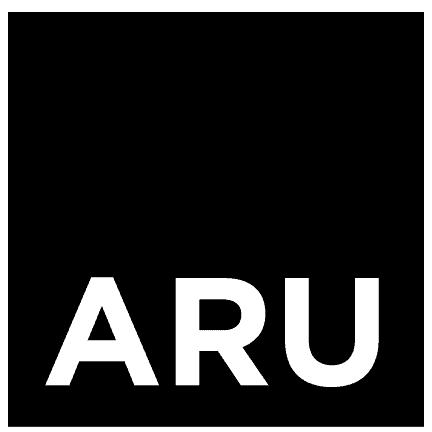
This course will examine the foundational principles of Ayn Rand’s moral philosophy while addressing core questions that her theory typically raises. Its major topics will be: the foundations of value; the objectivity of value (in contrast with intrinsicist and subjectivist conceptions); survival “versus” flourishing; the causal character of moral guidance; the role of values and virtues; egoism. Principal readings will be essays and excerpts from Ayn Rand and Leonard Peikoff, supplemented with essays by other scholars of Objectivism.
Required Readings
- Gregory Salmieri, “Egoism and Altruism – Selfishness and Sacrifice,” in A Companion to Ayn Rand, ed. Allan Gotthelf and Gregory Salmieri, Malden, MA: Wiley Blackwell, 2016. (Purchasable here)**
- Darryl Wright, “A Human Society” Rand’s Social Philosophy, in A Companion to Ayn Rand, ed. Allan Gotthelf and Gregory Salmieri, Malden, MA: Wiley Blackwell, 2016. (Purchasable here)**
- Tara Smith, “Morality’s Roots in Life,” in Viable Values – A Study of Life as the Root and Reward of Morality. Lanham, MD: Rowman and Littlefield, 2000. (Purchasable here)**
- Tara Smith, “Morality’s Reward: Flourishing,” in Viable Values – A Study of Life as the Root and Reward of Morality. Lanham, MD: Rowman and Littlefield, 2000. (Purchasable here)**
- Ayn Rand, ‘Introduction‘ to The Virtue of Selfishness
- Ayn Rand, “The Objectivist Ethics” in The Virtue of Selfishness
- Ayn Rand, “Causality versus Duty” in Philosophy: Who Needs It
- Ayn Rand, “This is John Galt Speaking” in For the New Intellectual
- Leonard Peikoff, Ch. 7: “The Good” in Objectivism: The Philosophy of Ayn Rand
** Flex students will need to purchase access to these essays as we cannot provide them due to copyright. ARU Live students do not need to make a purchase as they will be provided. ARU students can access the required readings here.
Course Bibliography: Bibliography
There are two types of assignments that you will complete in this course.
Assignments
For four of the eight units, you are required to answer a question posed by the instructor. The maximum word count for these answers is 600 words. Answers to these assignments are graded on the following 0 to 5 scale and count for 40% of your overall grade.
Homework will be graded on the following 0-5 scale.
- No assignment was submitted
- Assignment was submitted, but it does not answer the question in the prompt, is too unclear to read, or is too perfunctory (e.g., a one- or two-sentence answer).
- Assignment answers the question, but has significant problems (e.g., major points are missing, there are significant errors, the writing is unclear in important ways).
- Assignment answers the question and correctly identifies some key points, but either omits a significant point or aspect of the question prompt, contains errors, and/or does not show enough independent thinking about the issue (e.g., too much restating of Rand). A score of 3 is common.
- Assignment answers the question well, addresses each aspect of the assignment prompt, identifies the major points without significant errors, and shows evidence of independent thinking about the issue.
- Assignment answers the question exceptionally well, addresses each aspect of the assignment prompt, identifies the major points without errors, and shows evidence of independent thinking, understanding and insight. A score of 5 is rare.
Note: If an answer is on the borderline between two grades, factors such as the clarity or originality of the answer can make the difference between a lower and a higher grade.
Final Exam
At the end of the course, there is a final exam consisting of two essays for you to complete. Each essay should be between 1250-1500 words, and you should focus on how clearly you can get your thoughts and arguments stated in writing, and not on rhetorical style. The final exam will count for 60% of your overall grade (30% for each essay).
Please see the assignments tab for details.
Steven Warden will host a weekly live discussion session. Anyone in the course can attend to discuss the course materials. This is optional, but all participants in the class are encouraged to take advantage of this opportunity. Discussion sessions will alternate, week by week, between Friday 9:00-10:00 am and Saturday 9:00-10:00 am Pacific Standard Time.
Your Work Must Be Your Own (Plagiarism Policy)
The primary purposes of ARU assignments are 1) to help you to develop your ability to think about and communicate philosophical issues; and 2) to help instructors to understand where you are in your development of these abilities. To accomplish these aims, your work must be entirely your own and must not be plagiarized. Plagiarism is implying the false assumption of authorship: the wrongful act of presenting content one did not produce as one’s own.This means that you should not have input from others or from outside sources (unless explicitly allowed by the instructor and cited in your assignment). Violations of this policy include any collaboration with others on your work or asking others to review your work before submitting it, including spouses and others in close relationships with you. This also includes a prohibition on the use of generative AI tools like Chat GPT when used to produce or revise an answer to an assignment.
The Your Work Must Be Your Own policy extends to a prohibition on self-plagiarism, which is the reuse of your own work as if it were new. All assignments submitted must be new work by the student, both within and across courses. This includes a prohibition on the use of material previously developed outside of ARU, for instance for an undergraduate course.
Non-native speakers of English: As most online translation tools are now supported by AI, the use of online translators by non-native English speakers is forbidden in ARU assignments. Such tools obfuscate the student’s contribution to the assignment and make it impossible for faculty to form an objective assessment of the student’s understanding of the material and their ability to communicate philosophical ideas. The only exception is that a translator may be used for single words only. Translators may not be used to translate phrases or sentences.
Violations
Depending upon the facts and circumstances involved in the situation, ARU will choose the appropriate form of discipline for violations of the Confidentiality Requirement or Code of Conduct. Disciplinary judgments will be made at the sole discretion of ARU and there is no mechanism for independent appeal. Discipline may take any number of forms, which may include but is not limited to: an oral warning, a written warning, loss of benefits including financial aid, probation, suspension, or expulsion from ARU.
If you have any questions about the course content or assignments, please email Steven Warden (swarden@aynrand.org). For administrative or technical issues, please email Reagen Leimbach (rleimbach@aynrand.org).
You don’t currently have access to view this content
Course Content

Course Includes
- 9 Lessons
- 23 Topics
- 5 Writing Assignments
Course Faculty
 Tara SmithTara Smith is a professor of philosophy at the University of Texas. Her main interests concern the nature of values and virtues, and the requirements of objective law. Dr. Smith's legal interests center around proper methodology in judicial review and First Amendment issues. Her current research concentrates on privacy (both as a personal value and a legal right), and psychological dimensions of moral values, including the psychological challenges of aging.
Tara SmithTara Smith is a professor of philosophy at the University of Texas. Her main interests concern the nature of values and virtues, and the requirements of objective law. Dr. Smith's legal interests center around proper methodology in judicial review and First Amendment issues. Her current research concentrates on privacy (both as a personal value and a legal right), and psychological dimensions of moral values, including the psychological challenges of aging.


